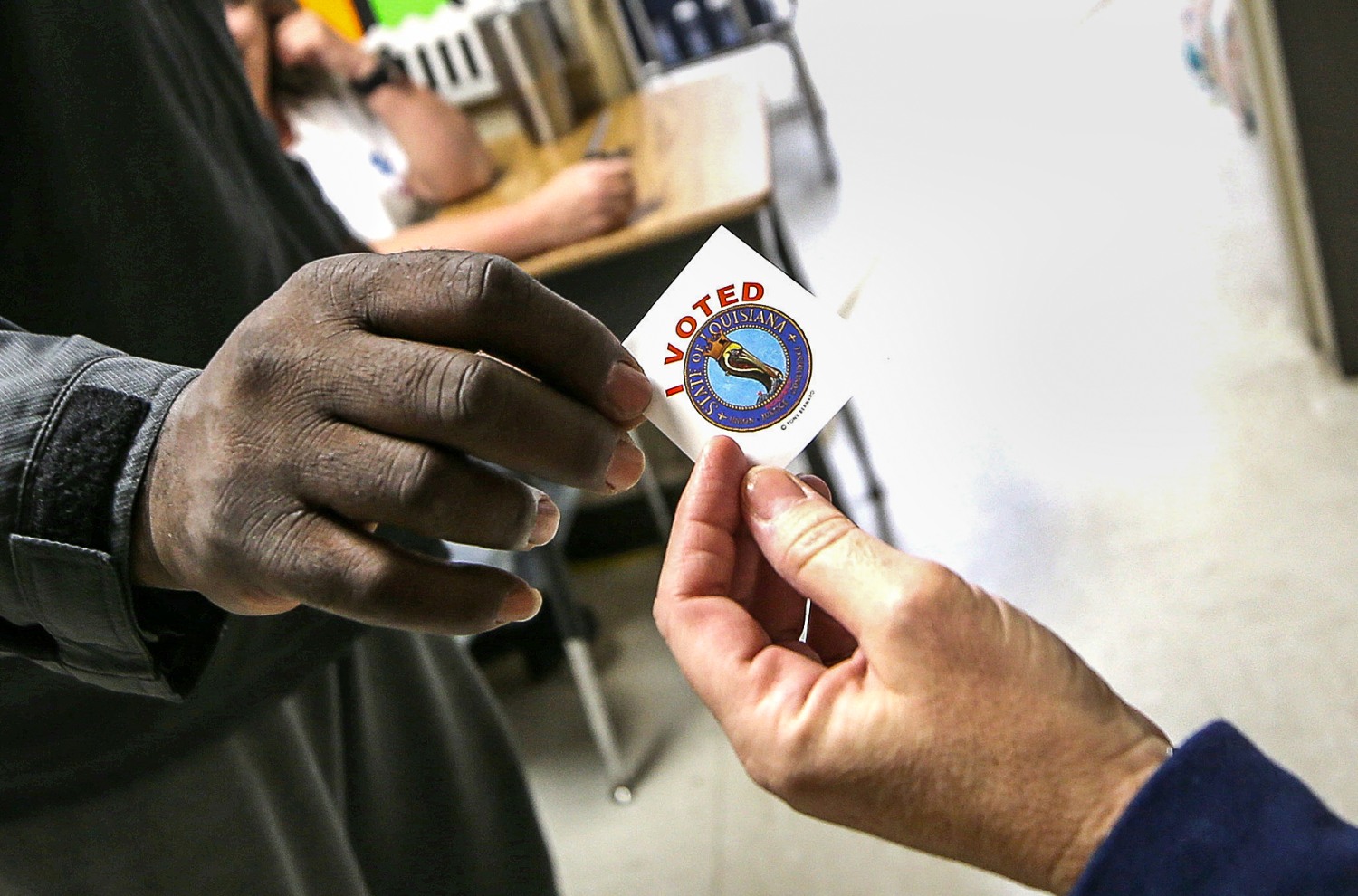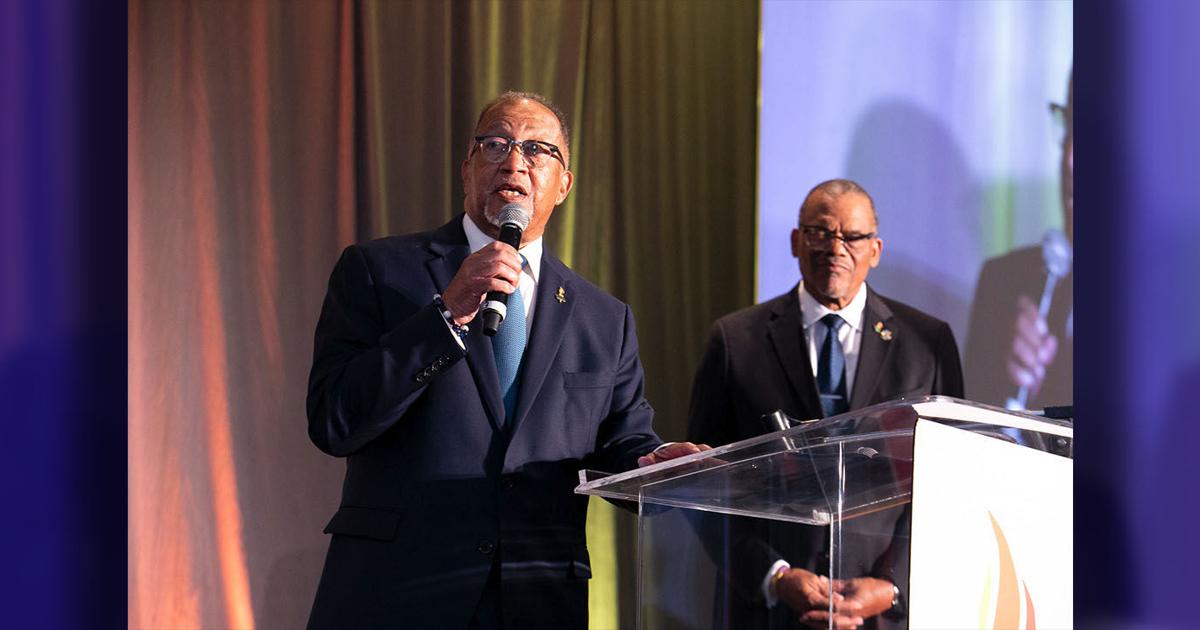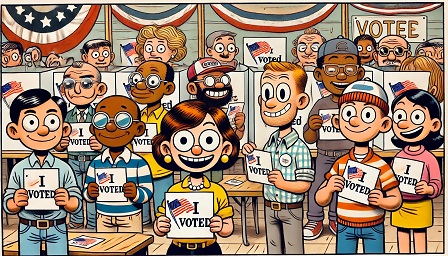- BlackVoter.Org
- Posts
- BlackVoter.Org
BlackVoter.Org


Mia Love, the groundbreaking former congresswoman from Utah, has passed away at the age of 49, succumbing to glioblastoma on March 23, 2025. A trailblazer as the first Black person and first African American Republican woman to serve in Congress, Love captivated many with her powerful voice and advocacy.
Her family shared a heartfelt tribute, emphasizing her legacy during her final moments spent at home with them. Diagnosed in 2022, she turned her battle with brain cancer into a message of gratitude, reflecting on her journey in her memoir, “Qualified.
” From serving on the Saratoga Springs City Council to making strides in Congress, Love’s impact resonated beyond politics; she was a beacon of hope, embodying the American Dream dreamed by her immigrant parents. Remembered by friends and colleagues as a force of nature, she leaves behind her husband and three children, along with a legacy of resilience and inspiration.

In a groundbreaking case, the U.S.
Supreme Court is examining Louisiana's racial gerrymandering issues, where a rare alliance between Republican officials and civil rights groups has emerged. This legal drama began after Louisiana’s congressional map was redrawn post-2020 census, leading to only one majority-Black district, despite Black residents making up about a third of the population.
Activists successfully fought back, achieving a map that features two majority-Black districts. However, new lawsuits from voters challenging this map raise questions about the balance between the Voting Rights Act and the Constitution's 14th Amendment.
Louisiana officials argue the ongoing legal battles drain resources without yielding clear wins for anyone. With a conservative-leaning Supreme Court, the outcome could redefine judicial approaches to racial considerations in districting efforts, making this case a pivotal moment for democracy and representation in America.

Joy Reid's show, The ReidOut, has been canceled by MSNBC, sparking a wave of emotions and reactions. Staff learned about the show's fate during a tense meeting, having originally found out via media leaks rather than directly from network executives.
This decision, part of a broader programming shake-up by new leader Rebecca Kutler, comes as Reid has been a prominent voice on the network since 2020. The evening slot will now feature hosts Symone Sanders Townsend, Michael Steele, and Alicia Menendez, previously known for their weekend program.
Reid's departure has ignited mixed reactions; many Democrats and influential figures express gratitude for her groundbreaking representation of Black voices, while some conservatives celebrate the change. The media landscape feels the impact of her exit, with both praise and criticism highlighting her significant role in fostering diverse political dialogue on television.

At the recent celebration for the 198th anniversary of the Black Press, Dr. Benjamin F.
Chavis Jr., President and CEO of the National Newspaper Publishers Association (NNPA), delivered a passionate State of the Black Press address highlighting the urgency for Black-owned media to combat growing threats from far-right extremism and misinformation.
Speaking at Howard University, Chavis emphasized the vital role of the Black Press in uniting communities, sharing authentic narratives, and mobilizing for significant voter turnout ahead of the 2026 elections. He decried the tactics of fear deployed by political foes and called for collaboration between Black media, churches, and businesses to strategize for progress rather than merely react to oppression.
With a powerful economic footprint of over $2 trillion, he urged the Black community to leverage its influence for change, underscoring that the time for action is now to safeguard democracy and civil rights.

In a powerful chapter of civil rights history, a courageous group of 46 white residents from Birmingham stood up against racial injustice in 1965. Inspired by the shocking realities of voter suppression faced by Black communities, they marched to Selma to demonstrate their solidarity.
This remarkable coalition, part of the Council on Human Relations, had been fostering inter-racial friendship and activism for years. With only ten days’ notice, they faced hostility and danger, holding signs that proclaimed their commitment to equality.
As they marched, they were met with both jeers from a hostile crowd and cheers from local Black activists, culminating in a unison rendition of “America the Beautiful.” Their act of defiance not only risked their safety but also echoed the sentiment that true change requires collective action.
In the midst of adversity, this group exemplified the notion that standing together against injustice can inspire hope and pave the way for a more inclusive future.

In the vibrant tapestry of African American history, faith and activism are intricately woven together, offering strength and resilience against systemic oppression. From the haunting spirituals sung during slavery to the powerful rhetoric of leaders like Dr.
Martin Luther King Jr., the Black church has served as a cornerstone of community resistance, education, and justice.
It provided not just spiritual refuge but also a moral compass during the Civil Rights Movement and continues to be pivotal in today’s social justice work, including movements like Black Lives Matter. Despite facing challenges in adapting to modern activism, the Black church remains essential, merging traditional faith with contemporary platforms to reach younger generations.
As we navigate ongoing inequalities, the church's role as a beacon of hope and catalyst for change must be revitalized, reaffirming that the fight for justice is not only political but profoundly spiritual. Faith, after all, fuels the ongoing quest for freedom and social justice.

In the wake of federal courts undermining the Voting Rights Act, states are stepping up to protect non-white voters with their own legislation. Democratic lawmakers in states like Alabama, Arizona, and Florida are championing new voting rights acts, aiming to restore vital protections dismantled by recent court rulings.
The federal Voting Rights Act, a cornerstone of civil rights, faced severe erosion, notably with the Supreme Court's 2013 decision that removed critical enforcement mechanisms. Now, state legislators are pushing for local measures to counteract this trend, ensuring fair political representation and safeguarding against voter suppression.
Maryland's proposed act, spearheaded by Senator Charles Sydnor III, highlights the urgency of restoring minority voting power amid growing concerns about redistricting and representation. As legislative battles unfold, advocates emphasize that meaningful changes must come from state initiatives, reminding us that democracy thrives when all voices are heard and protected.